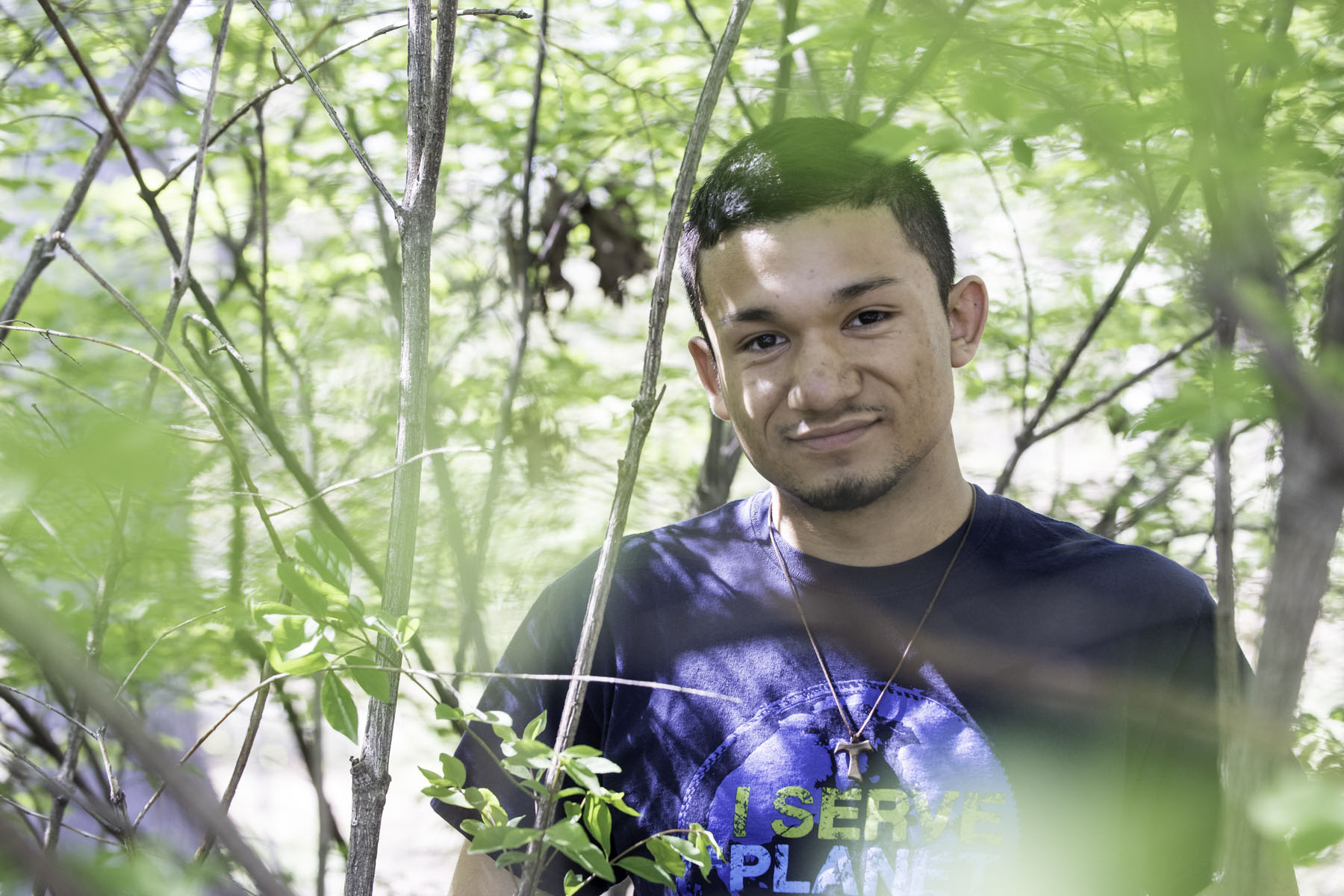
Christopher Fernandez is a junior biology major who has received the $7,000 Udall Scholarship given to students with concentrated studies in conservation and ecosystem sustainability. Photo by Ron Aira.
As a second-grader at Gunston Elementary School in Lorton, Va., Christopher Fernandez once asked his teacher, Marilyn Houston, why bees are so important.
“He always had a thirst for things that applied to the earth, whether it was the ocean or the land,” recalled Houston, now retired and living in Florida. “He just had a thirst to learn.”
For Houston, then, it was no surprise Fernandez, a junior biology major at George Mason University, received a prestigious Udall Scholarship.
Awarded by the Udall Foundation, which honors the legacy of the late brothers and politicians, Morris and Stewart Udall, the $7,000 award annually goes to 60 college sophomore and juniors committed to matters related to the environment or Native Americans.
At a four-day conference in Tucson, Ariz., in August, paid for by the foundation, scholarship recipients will work with professionals on case studies concerning environmental and tribal issues.
“I’m excited,” said Fernandez, whose scholarship application included an essay explaining how he identifies with the Udalls’ conservation ethic. “This is going to help me understand some of the roots of the conservation movement.”
“I can’t think of a more deserving person,” Houston said.
Consider Fernandez’s resume.
The Honors College student and first-generation college student interned last summer with the U.S. Fish and Wildlife Service in Merritt Island, Fla. He also has interned at the Long Island (N.Y.) National Wildlife Refuge Complex and traveled with a University of Georgia group to Costa Rica to study tropical ecology. Last semester, he studied at the Smithsonian-Mason School of Conservation in Front Royal, Va.
Fernandez helped organize a mentorship program in George Mason’s College of Science. Through Mason’s Office of Student Scholarship, Creative Activities and Research, he worked with Mason biology professor David Luther conducted an analysis of the U.S. Fish and Wildlife Service’s conservation actions in support of endangered and threatened bird populations.
“What really interests me is the intersections between science and society,” Fernandez said. “What are the measures to balance both human use and ecosystem function and health?”
“He is passionate about the environment,” said Patricia Granfield, Fernandez’s academic advisor in the Honors College. “He’s a real inspiration to students who want to pursue that kind of concentration.”
And to think it was Houston, who taught Fernandez in the second, third and fourth grades and got him involved in Gunston Elementary’s science club, who got the first glimpse.
“I enjoyed every minute I had him as a student,” Houston said. “He wants to do something, and we really need that.”
